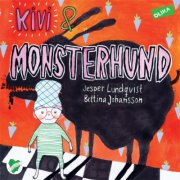Hen – the Swedish gender neutral pronoun Posted by jennie on Feb 15, 2012 in Culture, Swedish Language, Vocabulary
A tiny three letter word is causing debates and mixed emotions in Sweden at the moment. The word is “hen” and it’s the new suggested gender neutral pronoun – born from what many people feel is a need for a pronoun free of preconceived notions about gender.
(I should point out that the word itself is not new, but it has mainly been used in bi/homo/transgender circles up until now)
Personal pronoun:
Hon = she
Han = he
Hen = neutral
Den/Det = it
Indefinite pronoun:
Man = one
But “Man” is homonym with the word for man (male person) and can therefore be seen as non-gender neutral.
In today’s Swedish, “han” is used when the gender of a character is unknown and old Swedish writing rules dictate that “he” should be used when the sex is not known or is deemed irrelevant, like in information texts and legal documents for example. Lots of children’s books with animal characters are often assumed to be male and the hen-spokesmen and women are simply questioning this norm of using “han”. This is what Karin Milles, lecturer in Swedish, Södertörn University College, Karin Salmson and Marie Tomicic from OLIKA Publishing Ltd said about the subject in an article in the paper Svenska Dagbladet, translation by The Local:
“‘He’ becomes the norm and anyone who is supposed to be a “she” has to stand out by expressing her feminine attributes. A child who erroneously calls someone “he” is quickly corrected and learns that it is important to make a distinction between “he” and “she”. We argue that this should be of secondary importance and that the active separation of the sexes has negative consequences for both individuals and society.A more relaxed attitude with a less prominent gender indoctrination would lead to a better future. To bring the Swedish word “hen” into common usage is part of that work.”
One part of bringing hen into the Swedish language is by publishing a gender neutral book for children. It’s called “Kivi och monsterhund” (Kivi and monster dog) and is written by Jesper Lundqvist. It’s filled with hens, mappor (Mother = mamma, Father = pappa) morbroster (Uncle = morbror, Aunt = moster) and bröstrar (Brothers = bröder, Sisters = systrar). The book isn’t even published yet but has received a great deal of attention and press – not only from Sweden – and hen has become a burning issue. Some people greet it with open arms, some think it’s ludicrous and some simply just welcome the debate.
What is your take on hen? Do we need a gender neutral pronoun? Do you have one in your language?
Read more about the book here!

Build vocabulary, practice pronunciation, and more with Transparent Language Online. Available anytime, anywhere, on any device.





Comments:
Lee C.:
Interestingly, in older texts Swedish uses she/her (hon/henne) to refer to a neutral person (människa). Compare the 1917 Bible:
Och Herren Gud danade människan av stoft från jorden och inblåste livsande i HENNES näsa…
to the 1977 Bible:
Och Herren formade en mans kropp av markens jord och blåste in livsande i HONOM.
(English: Then the Lord God formed a man from the dust of the ground and breathed into HIS nostrils the breath of life…)
I’m not a language expert, but I wonder if this has to do with the fact that nouns in Swedish used to have more genders than they do today (en and ett).
MichiganLady:
So, has “hen” caught on yet ANYwhere? Are any journalists using it?
jennie:
No, I have not seen it being used by journalist in general, not yet. But the entertainment magazine Nöjesguiden will make their entire next issue gender neutral and hen all the way through… Interesting, to say the least!
Skört:
The problem is the Utrum. In languages such as Polish, German and even Norwegian, where people still have all three genders for nouns there is less of a fuss because they know that genus and sexus are not the same. Male words such as buk (birch) and Ball are male in those languages but people wouldn’t expect a tree or ball to have a penis dangling down.
Swedish has recently lost the male/female genus and acquired an Utrum but has not lost the sexus-pronouns hon/han.
I think it is not really important to notice that “people” are both male and female – because you do not assume an all-male group anyway. So there’s no need for “hen”.
There is, however, a certain need to know whether my father is my father or my mother. He’s certainly not something in between.
So in general I find this whole thing stupid because politics shouldn’t interfere with language. That’s “1984” and that book wasn’t meant to be an example to follow.
C. K.:
While I mostly agree with Utrum – on other hand, is there need for “sexus-pronouns”? Many languages do fine without.
Let’s see if it catches on. Languages tend to change, and some changes have been more or less intentional.
Jan Hedlund:
Hen – Wikipedia, the free encyclopedia en.wikipedia.org/wiki/Hen commonly refers to a female animal: a chicken, other poultry, game bird, octopus, or lobster. It is also a slang term for a woman…